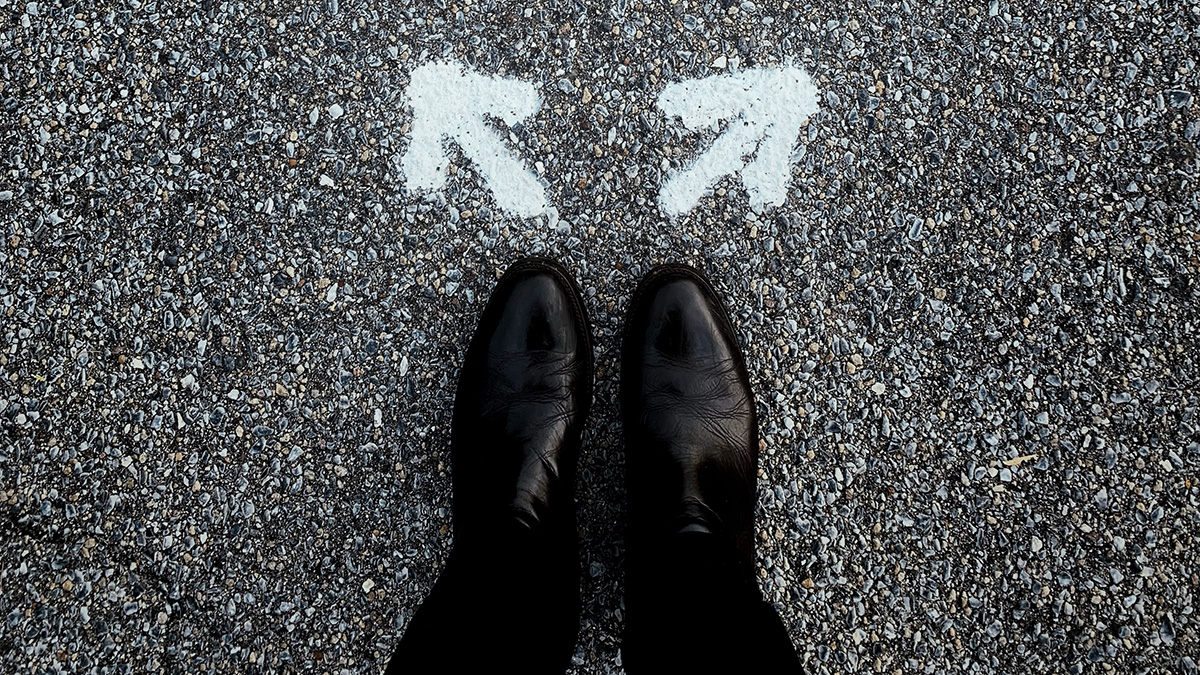

The Weight of Too Much “Choice”
No matter how many choices we have, we cannot remake the world. Everywhere we turn, we butt up against the limits of creation.
08/24/22
John Stonestreet Maria Baer

Regular listeners to the weekly Breakpoint This Week podcast know that my co-host Maria and I are fans of the reality competition show Alone. Ten wilderness experts are dropped in the middle of nowhere, usually a place that is cold and full of bears, forced to fend for themselves. Whoever stays the longest wins.
In the latest season, a military veteran with strong survival skills and extensive experience overseas seemed poised to win. Instead, he called it quits just a few weeks in. In an interview afterwards, he explained, “When I was in the military and separated from family, I didn’t have a choice. Out here… I had that opportunity to get on the radio or the phone and say, ‘Hey, I’m going to go back to where I’m comfortable.’” In other words, having the choice to go home made staying much harder.
According to conventional wisdom, at least the kind accepted in this cultural moment, the opposite should have been true. More control and more choices are supposed to bring easier and more satisfying lives.
That misconception is, in fact, a feature of life since modernism. For most of human history, humans held no illusions of being masters of their own fate. Writing back in 1976, American sociologist Peter Berger identified what changed, especially for Westerners. Because of the dramatic progress brought by science and technology, humans in the modern period began to believe that the world would eventually be fully understood. And if understood, it could also be mastered, as well.
“What previously was experienced as fate now becomes an arena of choices,” Berger wrote. “In principle, there is the assumption that all human problems can be converted into technical problems… the world becomes ever more ‘makeable.’”
A mark of our late postmodern era is the obsession with having choices. The higher the stakes, the more acute is the illusion of freedom. Supreme Court Justice Anthony Kennedy described this impulse in his now overturned Planned Parenthood v. Casey decision, when he wrote that “At the heart of liberty is the right to define one’s own concept of existence, of meaning, of the universe, and of the mystery of human life.” In his view, the “freedom of choice” extends to even choosing what is real. Is it any wonder that people now believe that choice extends beyond sexual behavior to sexual identity?
However, if happiness truly comes from the control made possible through infinite choices and the ability to “make the world,” why did the military officer competing on Alone find the opposite to be true? Why did his freedom of choice turn out to be too much of a burden? Why do so many studies show that we are less happy than ever?
The postmodern assertion that we can “make the world” exploits a weakness inherent to our fallen humanness and especially acute today. We struggle to delay gratification. We might fool ourselves into thinking that we can, in fact, define our existence or choose our gender. We may think our decision about whether to stay married or whether to bring an unborn child to birth is based on deep reflections. However, because we can, we tend to choose comfort now at the expense of flourishing later. If we have the option, we call the producers and tap out.
Justice Kennedy was wrong. No matter how many choices we have, we cannot remake the world. Everywhere we turn, we butt up against the limits of creation. According to a Christian worldview, this is actually good news. God created the world with limits: physical and moral laws, bodies, certain geographic locations and times in history, and not other ones. He gives us specific parents and siblings and children, whose specific needs constantly impose limits on our choices.
Even if, in modernity and postmodernity, such limits are anathema, to be resisted and fought against with all the science and technology we can muster, true freedom is found by recognizing and resting in God’s good limits, both physical and moral. If God is good, then the limits He imposes are not burdens. They’re blessings.
Have a Follow-up Question?
Up
Next

Related Content

© Copyright 2020, All Rights Reserved.













